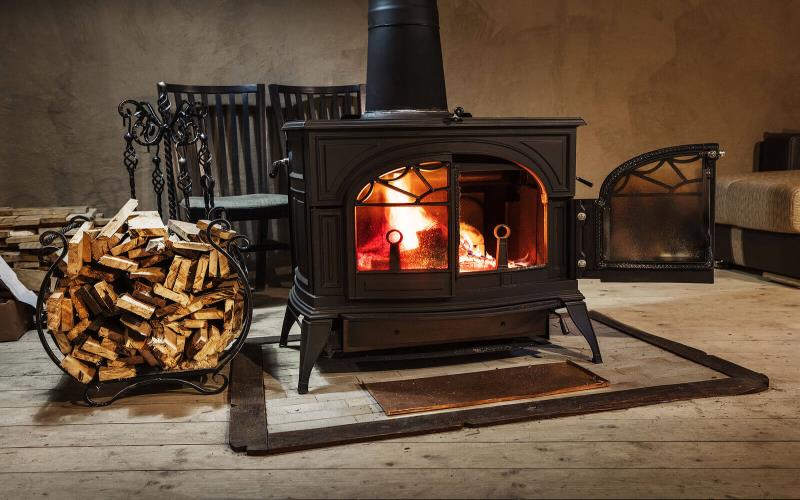When temperatures dip, you take shelter in your warm home. The allure of a blazing hearth – inherent in traditional wood fireplace heaters – captivates you with its romantic charm. Yet, recent years have seen scrutiny rise over the environmental consequences of using these heating sources. Therefore, you must understand the environmental impact of wood fireplace heaters and actively explore methods to enhance their eco-friendliness.
Considering their slower burn rate and widespread availability compared to gas or electric heat sources, wood fireplace heaters offer an excellent source of sustainable heating energy. The carbon dioxide they emit during combustion equals what the tree absorbed while growing, thus earning wood a ‘carbon-neutral’ fuel designation.
However, despite these apparent advantages of wood fireplace heaters, you must remain mindful of various environmental factors.
Air Quality Concerns
One of the prominent environmental considerations in the conversation about wood fireplace heaters involves air quality. Burning wood releases a variety of pollutants into the atmosphere: these include particulate matter, carbon monoxide, volatile organic compounds (VOCs), and nitrogen oxides. Chronic exposure to such elements can cause respiratory issues and intensify lung conditions; indeed, they play an integral role in urban air pollution.
In fact, in many cities worldwide, regulatory authorities have started implementing emission control standards on wood-burning appliances because of these issues. Therefore, opting for wood fireplace heaters that meet local emission standards and encourage improved air quality is crucial.
Sustainability of Wood
Wood, a renewable energy source, relies heavily on its sustainability as fuel; this dependence originates from the method of harvesting. Indiscriminate deforestation–an enormous environmental concern–results directly from unchecked tree felling. By contrast, responsible harvesting fosters forest regeneration and guarantees ongoing fuel sustainability.
Opting for wood certified as sustainably harvested actively mitigates the harmful effects of deforestation, thereby preserving vital benefits offered by natural forests. This choice not only reduces your carbon footprint but also provides you with a warm and cosy environment unique to wood fireplace heaters.
Efficiency in Energy Output
Another often ignored environmental consideration is the energy efficiency of wood fireplace heaters. Traditional open-hearth wood fireplaces can prove wasteful by allowing a significant amount of heat to escape through the chimney instead of warming the room. This inefficiency necessitates additional wood consumption; consequently, emissions increase, and there is more resource depletion.
Conversely, modern wood fireplace heaters – that meet the Australian Standard for heat efficiency – have considerably enhanced this aspect: they establish a more controlled combustion environment, utilise specific materials in their construction, and, as a result, boast an efficiency rate typically exceeding 70%. The design’s high efficiency implies that you get increased heat with decreased wood usage, thus curtailing your environmental footprint.
Ways to Improve Environmental Impact
While the concerns associated with wood fireplace heaters are noteworthy, there are several ways to lessen your environmental impact. These include:
- using dry, seasoned wood to reduce the amount of smoke produced
- installing wood-burning appliances certified by the Australian Home Heating Association
- ensuring you maintain and clean your fireplace heater regularly
- burning only the necessary quantity of wood.
Conclusion
Wood fireplace heaters may have some environmental implications; however, you can manage and mitigate these. By actively making informed choices regarding your choice of a fireplace heater–as well as its operation–you not only experience the comfort of an inviting, warm hearth but also remain aware of its potential impact on the environment. Ultimately, education and awareness are the first steps towards effective environmental stewardship.
Beyond merely providing warmth, your fireplace should exemplify a profound respect for the environment. So, remember- each small action you undertake today – including your choice of wood fireplace heater – lays the foundation for improved health tomorrow and sustainability in future years.





